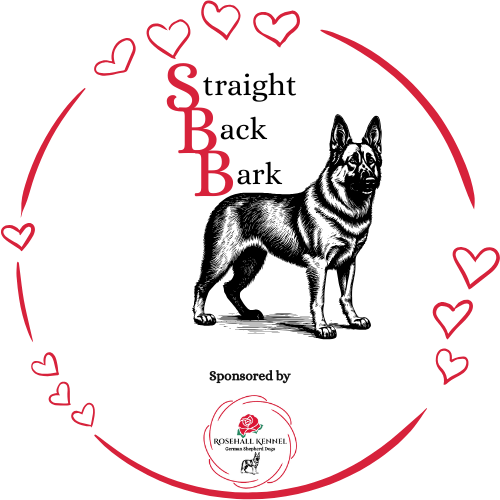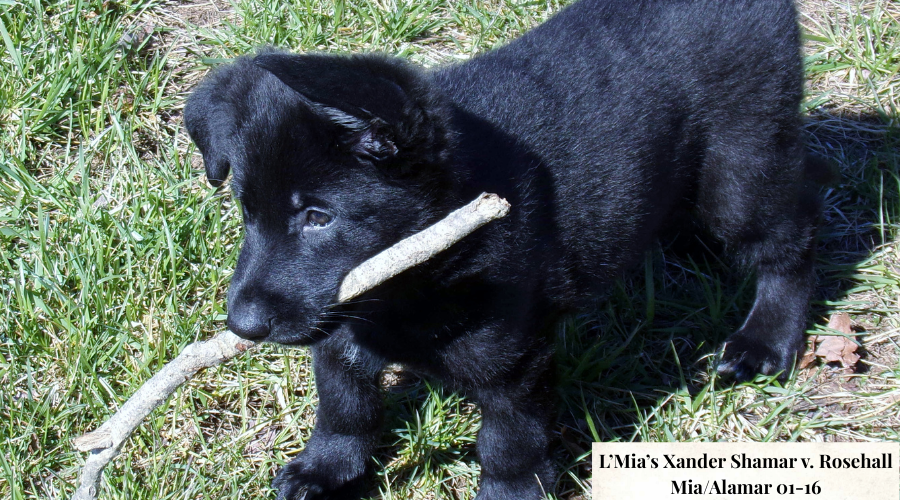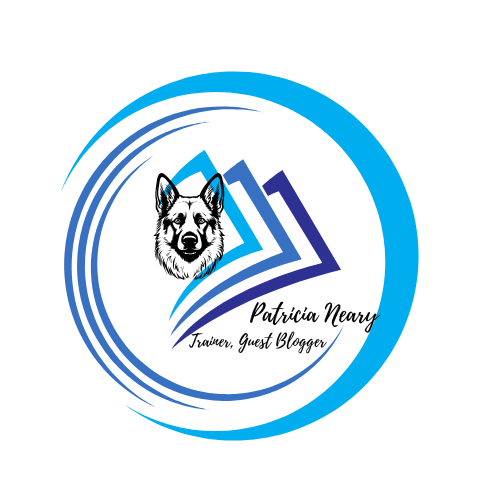That sweet puppy you brought home at 8 weeks has turned into a terror. By 16 to 20 weeks, you noticed it showed more aggression or reactive behavior. This behavior is a stage that most puppies go through, and without the proper training, it could follow the puppy through adulthood and get worse as the dog ages.
Training Your German Shepherd puppy to prevent aggressive or reactive behaviors involves a combination of socialization, positive reinforcement and consistent training practices. Professional trainers use strategies to help ensure your German Shepherd puppy grows into a well-adjusted adult dog.
The Importance of Socialization
You can use the same strategies to ensure your puppy becomes a well-rounded and well-socialized adult German Shepherd dog.
Critical Socialization Period: 3 to 14 Weeks
Exposing your puppy during the recommended critical socialization period is key. Introduce your puppy to a variety of people, sounds, children, and other puppies/dogs, and the family cat helps them become well-rounded and reduces fears of the unknown.
During this time, use toys, food, treats and praise to reward your German Shepherd puppy for good behavior. Once your puppy reaches 8 weeks, it is time to start introducing it to strange dogs—as long as you know they are friendly. You should also introduce the puppy to other people. While they are strangers to your puppy, they are your friends and relatives.
Essential Training Tips: Gradual Exposure to Triggers
Control exposure to triggers gradually. If your puppy shows signs of fear or aggression towards specific triggers, gradually expose your puppy to the trigger at a distance where your puppy feels safe. Reward your puppy for calm behavior each time it sees or hears the trigger. Common triggers include:
- Vacuum cleaners
- Thunder
- Loud noises
- Loud vehicles
- Other dogs
- Strangers
Depending on your puppy's drive, it may respond better to balls or toys, verbal praise and petting or food. If your puppy responds better to treats, keep one treat for training. Your puppy should get that treat only during periods of training. It needs to be a high-value treat.
The same applies to balls and toys. Use your puppy's favorite toy for training only. Keeping separate treats and toys for training lets your puppy know that it's time to work.
Avoid Negative Experiences
Avoid negative experiences by not exposing your puppy to overwhelming or frightening situations. It can lead to fear-based aggression or reactivity. Remember to stay calm and composed when encountering any potentially stressful situations. Your puppy can pick up on your emotions. Always introduce your puppy to stressful situations as gradually as possible and with lots of praise and rewards.
Remain Consistent With Daily Routine, Commands and Cues
Being consistent and setting daily routines for feedings, walks, and training can help your German Shepherd puppy feel secure and understand what you expect from it. Using the same commands and cues consistently throughout the training process will help your puppy learn and understand what you expect from it.
Understanding Fear Periods in German Shepherd Dogs
Fear periods in dogs refer to specific developmental stages during which puppies and dogs may exhibit increased fearfulness or sensitivity to their environment. These periods can be crucial for your shepherd's socialization and emotional development.
German Shepherds have multiple fear periods. Critical development stages start in puppyhood. Puppies go through a couple of fear periods,
- 8 to 11 weeks
- 6 to 14 months
- Adolescence ("The Terrible Twos")
These are times when your German shepherd may become more sensitive to new experiences, loud noises, unfamiliar people, and animals. During adolescence, your shepherd may show an increase of fear or anxiety towards things that your shepherd previously accepted.
Signs of Fear in Your German Shepherd Puppy
Some common signs of fear include:
- Cowering
- Hiding
- Barking
- Growling
- Trembling
- Avoiding eye contact
- Trying to escape
Some shepherds may also exhibit avoidance behavior or become aggressive when they feel threatened. Major life changes such as moving, adding another pet, and changes in family dynamics can trigger fear responses in German shepherds. It is important to be mindful of these changes and provide additional support during these stressful times. If a GSD's fearfulness is severe or persistent, it may be beneficial to contact a professional dog trainer or behaviorist who can tailored strategies and support.
During these times, patience, positive reinforcement, and proper socialization can help GSDs navigate their fears and grow into well-adjusted adults.
Be Proactive In Preventing Future Reactivity and Aggression
Effective socialization for your German shepherd puppy during critical developmental stages, particularly around fear periods, is vital for preventing future reactivity and aggression. Investing time and proper socialization not only enhances your German shepherd puppy's emotional well-being but also strengthens the bond between puppy and owner, paving the way for a harmonious relationship.





Comments